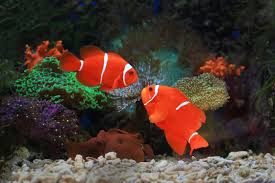Tea has been an integral part of Chinese culture for thousands of years, celebrated not only for its delightful flavors but also for its health benefits. While tea is commonly associated with adults, certain types of tea can also be beneficial for children. In China, herbal and mild teas are often given to children to support digestion, immunity, brain function, and overall development.

This article explores:
✔️ The benefits of tea for children’s growth
✔️ The best types of Chinese tea suitable for kids
✔️ How to prepare tea safely for children
✔️ Tea recipes that children will enjoy
1. Can Children Drink Tea? Understanding Tea’s Role in Child Development
Many parents wonder whether it is safe for children to drink tea. While some types of tea contain caffeine, which is not recommended for young children, there are many caffeine-free herbal teas that are safe and beneficial.
🌿 1.1. The Benefits of Tea for Children
Drinking the right types of tea can support children’s health and growth in the following ways:
✔️ Boosts Immunity – Certain teas contain antioxidants and vitamins that help strengthen the immune system.
✔️ Aids Digestion – Herbal teas like chamomile and ginger can soothe the stomach and improve digestion.
✔️ Supports Brain Function – Mild teas rich in L-theanine can promote relaxation and mental focus.
✔️ Enhances Hydration – Tea is a great alternative to sugary drinks and helps keep kids hydrated.
✔️ Improves Sleep – Some teas, like chrysanthemum tea, can help children sleep better.
💡 Choosing the right tea is crucial to ensure safety and maximum health benefits!
2. Best Types of Chinese Tea for Children’s Health and Growth
Not all teas are suitable for children. The best options are caffeine-free herbal teas and mild green teas. Let’s explore some of the most beneficial Chinese teas for kids:
🍵 2.1. Chrysanthemum Tea (菊花茶, Júhuā Chá) – Boosts Immunity & Supports Vision
✔️ Key Benefits:
- Rich in antioxidants that strengthen the immune system
- Supports eye health, reducing strain from screens
- Has a mild floral taste that children enjoy
💡 Perfect for kids who spend a lot of time on digital devices!
🍵 2.2. Goji Berry Tea (枸杞茶, Gǒuqǐ Chá) – Rich in Vitamins for Growth
✔️ Key Benefits:
- High in vitamin C to boost immunity
- Contains beta-carotene for eye and skin health
- Helps maintain healthy energy levels
💡 Goji berries can be added to warm water for a naturally sweet tea!
🍵 2.3. Jujube Tea (红枣茶, Hóngzǎo Chá) – Supports Brain Development & Sleep
✔️ Key Benefits:
- Improves blood circulation, supporting brain function
- Naturally sweet, making it appealing to kids
- Promotes better sleep and relaxation
💡 Jujube tea is often combined with goji berries for extra nutrition!
🍵 2.4. Honeysuckle Tea (金银花茶, Jīnyínhuā Chá) – Fights Colds & Flu
✔️ Key Benefits:
- Anti-inflammatory and antibacterial properties
- Helps reduce symptoms of colds and flu
- Aids in detoxifying the body
💡 A warm cup of honeysuckle tea can help kids recover from colds faster!
🍵 2.5. Mint Tea (薄荷茶, Bòhé Chá) – Aids Digestion & Reduces Nausea
✔️ Key Benefits:
- Soothes stomach aches and indigestion
- Refreshing and cooling, ideal for hot weather
- Naturally caffeine-free
💡 Perfect for kids who experience stomach discomfort or motion sickness!
🍵 2.6. Lotus Leaf Tea (荷叶茶, Héyè Chá) – Promotes Healthy Digestion
✔️ Key Benefits:
- Aids in digestion and metabolism
- Helps maintain gut health
- Mild flavor, making it easy to drink
💡 Lotus leaf tea is often used in traditional Chinese medicine to improve digestion!
🍵 2.7. Mulberry Leaf Tea (桑叶茶, Sāngyè Chá) – Supports Healthy Lungs & Skin
✔️ Key Benefits:
- Strengthens lung function
- High in calcium and iron for growth
- Helps prevent skin irritation
💡 Mulberry leaf tea is beneficial for children prone to allergies or respiratory issues!
3. How to Prepare Tea Safely for Children
To make tea safe and enjoyable for children, follow these simple guidelines:
✔️ Use warm water instead of boiling water – This prevents burns and keeps the tea mild.
✔️ Limit the tea concentration – Use fewer tea leaves or dilute with more water.
✔️ Serve at a mild temperature – Lukewarm tea is safer and more pleasant for kids.
✔️ Avoid adding too much honey or sugar – Tea should be naturally sweetened with fruits or goji berries.
✔️ Offer tea in small amounts – Start with half a cup per day to see how your child reacts.
💡 Always consult a doctor before introducing new herbal teas to young children!
4. Fun & Healthy Tea Recipes for Kids
To make tea more appealing to children, try these fun and delicious recipes:
🍹 4.1. Goji Berry & Jujube Sweet Tea
✔️ Ingredients:
- 5 dried goji berries
- 2 sliced jujube dates
- 1 cup warm water
💛 Instructions:
1️⃣ Add goji berries and jujube to warm water.
2️⃣ Let it steep for 5–10 minutes.
3️⃣ Strain and serve slightly warm.
💡 A naturally sweet tea that supports growth and immunity!
🍹 4.2. Chrysanthemum & Honey Cooling Tea
✔️ Ingredients:
- 3 dried chrysanthemum flowers
- 1 teaspoon honey
- 1 cup warm water
💛 Instructions:
1️⃣ Steep chrysanthemum flowers in warm water for 5 minutes.
2️⃣ Add honey and stir well.
3️⃣ Serve warm or cold.
💡 A refreshing tea that promotes relaxation and better sleep!
🍹 4.3. Mint & Lemon Digestive Tea
✔️ Ingredients:
- 5 fresh mint leaves
- 1 slice lemon
- 1 cup warm water
💛 Instructions:
1️⃣ Add mint leaves to warm water.
2️⃣ Let it steep for 5 minutes, then add lemon.
3️⃣ Strain and serve.
💡 A cooling tea that helps with digestion and hydration!
5. Conclusion
Chinese fresh tea is not only for adults—certain herbal and mild teas can support children’s growth, immunity, and digestion. By choosing caffeine-free teas like chrysanthemum, goji berry, mint, and honeysuckle tea, parents can introduce their children to the world of healthy and natural beverages.
With the right preparation and delicious tea recipes, tea can be a safe and beneficial drink for children, helping them develop good hydration habits while supporting their health naturally.
Would you like to try these teas for your child? Share your experiences and favorite tea recipes in the comments below! 🍵✨









